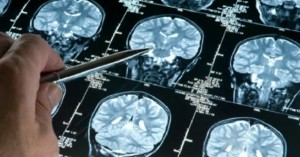Ependymoma Newport Beach & Orange County, CA
Ependymoma Treatment in Orange County
 Ependymoma is a type of glioma, which starts in the glial cells. Glial cells support and protect nerve cells in the brain (neurons). Ependymomas develop from ependymal cells, a sub-type of glial cells. These cells line the fluid-filled ventricles or spaces in the brain and the center of the spinal cord. Surgical removal is the best treatment for ependymoma, which is resistant to chemotherapy.
Ependymoma is a type of glioma, which starts in the glial cells. Glial cells support and protect nerve cells in the brain (neurons). Ependymomas develop from ependymal cells, a sub-type of glial cells. These cells line the fluid-filled ventricles or spaces in the brain and the center of the spinal cord. Surgical removal is the best treatment for ependymoma, which is resistant to chemotherapy.
- Headaches
- Seizures
- Nausea or vomiting
- Weakness or loss of sensation in the arms and/or legs
- Speech difficulty
- Vision problems
- Loss of memory
- Personality changes
Magnetic resonance imaging (MRI): An MRI uses magnetic fields to produce detailed images of the brain. A special dye called a contrast medium is injected into a patient’s vein before the scan to create a clearer picture.
Biopsy: Dr. Louis will perform this technique, which uses a needle guided to the tumor or it can be done during surgery when the surgeon can look at the tumor directly. This process is crucial as it will dictate the best course of treatment and will also give important information about the prognosis.
After diagnostic tests are done, Dr. Louis will review all of the results with you and describe the tumor stage, grade, and best treatment options.
Minimally Invasive Keyhole Brain Surgeries
Orange County neurosurgeon Robert Louis, MD specializes in minimally invasive removal of chordoma. Less invasive keyhole surgical approaches incorporate Dr. Louis’ experience and education with cutting-edge technology and instrumentation.
Endoscopic Endonasal Approach – Chordoma of the skull base may be approached directly using the Endoscopic Endonasal Approach. Robert Louis, MD specializes in this state-of-the-art, minimally invasive surgery in accessing and removing the tumor through the natural corridor of the nose. Read more about Endoscopic Endonasal Approach.
Stereotactic Radiosurgery- Gamma Knife®
Your Orange County neurosurgeon Robert Louis, MD may also treat your ependymoma by using a linear accelerator-based system called stereotactic Gamma Knife® radiosurgery – a painless procedure that delivers hundreds of highly-focused radiation beams to a tumor or lesion within the brain without any surgical incision. This treatment may be an option for treating residual tumors after surgery or recurrent ependymoma brain tumors.
Robert Louis, MD, a fellowship-trained Orange County Neurosurgeon, is the Director of the Skull Base and Pituitary Tumor Program at Hoag Memorial Hospital in Orange County, California. Dr. Louis has particular expertise in the endoscopic and minimally invasive treatment of benign and malignant brain tumors, sellar and parasellar tumors, and skull base tumors.
Dr. Robert Louis specializes in minimally invasive endoscopic transsphenoidal surgery for the removal of pituitary tumors. For appointments, please call (949) 383-4185 or Contact Us.
















